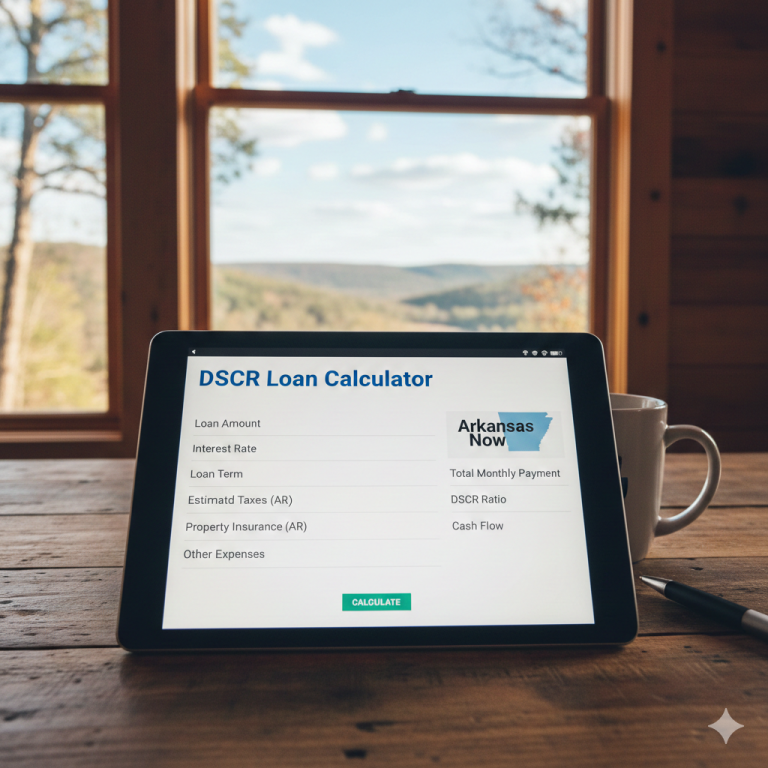Contributing Author & Editorial Review
This article was crafted and reviewed by experienced professionals to ensure accuracy and practical insight.


SBA 7(a) & 504 Highlights
- Loan amounts from $100,000 up to $15 million+ (program-dependent).
- Up to 90% financing for eligible acquisitions, real estate, and equipment.
- Use funds for working capital, refinance, expansion, and partner buyout.
- Longer terms (up to 25 years on real estate) to keep payments manageable.
The Prescription for Growth: A Texas Doctor’s Guide to SBA Loan Programs for Medical Practices
As a medical practice owner in Texas, your focus is on patient outcomes and quality of care. But to keep your doors open and your practice thriving, you must also be a savvy small business owner. You face unique financial pressures: the high cost of specialized equipment, the constant need for working capital to manage insurance reimbursement cycles, and the ambition to expand your services or acquire a new location.
When traditional bank loans fall short—often demanding high down payments and offering short repayment terms—many doctors feel frustrated and stuck.
This is where SBA loan programs for medical practices become a powerful financial tool. These government-backed loans are not just for retail shops or restaurants; they are perfectly designed to solve the specific capital challenges faced by physicians, dentists, veterinarians, and other healthcare providers.
Need capital? GHC Funding offers flexible funding solutions to support your business growth or real estate projects. Discover fast, reliable financing options today!
⚡ Key Flexible Funding Options:
GHC Funding everages financing types that prioritize asset value and cash flow over lengthy financial history checks:
DSCR Rental Loan
- No tax returns required
- Qualify using rental income (DSCR-based)
- Fast closings ~3–4 weeks
SBA 7(a) Loan
- Lower down payments vs banks
- Long amortization improves cash flow
- Good if your business occupies 51%+
Bridge Loan
- Close quickly — move on opportunities
- Flexible underwriting
- Great for value-add or transitional assets
SBA 504 Loan
- Low fixed rates through CDC portion
- Great for construction, expansion, fixed assets
- Often lower down payment than bank loans
🌐 Learn More
For details on GHC Funding's specific products and to start an application, please visit our homepage:

This guide will serve as your authoritative resource for navigating SBA loans in Texas, helping you secure the capital needed to move from merely surviving to strategically thriving.
Current Market Insights: What to Expect Today
Understanding the current financial landscape is the first step. The most popular and flexible program, the SBA 7(a) loan, offers competitive, variable rates tied to a benchmark.
- The Benchmark: Rates are based on the Wall Street Journal (WSJ) Prime Rate, which is currently get quote.
- The “Spread”: The lender adds a “spread” (margin) to this Prime Rate, which the SBA caps.
As of today, here are the realistic interest rates you can expect for a variable-rate SBA 7(a) loan:
| Loan Amount | Loan Term | Maximum SBA Spread | Estimated Total Rate |
| Over $50,000 | 7+ years | Prime + 2.75% | get quote. |
| Over $50,000 | < 7 years | Prime + 2.25% | get quote. |
| $25,001 – $50,000 | 7+ years | Prime + 3.75% | get quote. |
| $25,000 or less | 7+ years | Prime + 4.75% | get quote. |
Your final rate will be influenced by:
- Business & Personal Credit: While you don’t need a perfect 800, a strong personal credit score (ideally 680+) and a clean business credit history are critical.
- Time in Business: Established practices with 2+ years of solid tax returns will secure the most favorable terms. Start-up practices (under 2 years) will face higher scrutiny and may require more equity.
- Annual Revenue & Cash Flow: Lenders are laser-focused on one thing: repayment ability. You must demonstrate consistent, sufficient cash flow to easily cover the new loan payment.
- Available Collateral: While SBA loans offer more flexibility on collateral than conventional loans, lenders will still want to secure the loan with available assets (business equipment, real estate, etc.).
The SBA Advantage: Why These Loans are Built for Medical Practices
SBA loans solve the biggest pain points for healthcare owners. The requirements are designed to get capital into the hands of qualified small businesses, not to find reasons to say no.
- Flexible Use of Funds: This is the #1 benefit. You can use an SBA 7(a) loan for virtually any legitimate business purpose, including:
- Acquiring a Practice: Buying out a partner or purchasing an entire practice from a retiring doctor.
- Purchasing Commercial Real Estate: Stop leasing and buy your own medical office building (often with as little as 10% down).
- Buying High-Value Equipment: Finance that new digital X-ray machine, dental chair, or diagnostic lab equipment.
- Working Capital: Get the cash you need to manage payroll, invest in marketing, or bridge gaps during slow insurance payment cycles.
- Renovating or Expanding: Build out a new wing, add more operatories, or modernize your waiting room.
- Refinancing High-Interest Debt: Consolidate expensive credit card debt or other short-term loans into one, manageable monthly payment.
- Long Repayment Terms: This is critical for cash flow. Instead of a 3- or 5-year term from a conventional bank, SBA loans offer:
- Up to 25 years for commercial real estate
- Up to 10 years for equipment and working capital
- 10 years for business acquisition
- Lower Down Payment Requirements: Preserve your cash. A practice acquisition or real estate purchase through an SBA program often requires only 10% down, compared to the 20-30% demanded by most conventional lenders.
- No Prepayment Penalties: For most loans (those with terms under 15 years), there is no penalty for paying the loan off early. If your practice has a great year, you have the flexibility to pay down your debt faster.
Your Texas Growth Strategy: SBA Loans in Action
Texas’s economy is a powerhouse, but the opportunities—and challenges—look different in each metro area. Here’s how SBA loan programs for medical practices can be deployed across the state.
🩺 Houston: Dominating the Medical Center
In an area as competitive as the Texas Medical Center (TMC) or the dense suburbs of Katy (77494), you need to invest to stand out.
- Funding Scenario: A specialized surgical practice near ZIP code 77030 (TMC) uses a $2 million SBA 7(a) loan to purchase cutting-edge robotic surgical equipment. The 10-year term keeps payments manageable, allowing them to offer advanced procedures that attract top talent and patients, staying competitive with major hospital systems.
🦷 Dallas-Fort Worth: Expanding in a Tech & Finance Hub
The DFW metroplex is fueled by corporate HQs, finance, and tech, driving massive population growth in suburbs like Frisco (75034) and Plano (75093).
- Funding Scenario: A successful dental group in North Dallas decides to acquire a smaller, retiring dentist’s practice in Arlington (76016). They use a $1.2 million SBA loan to finance 90% of the acquisition and provide $150,000 in working capital to modernize the new location’s branding and digital systems.
🧘 Austin: Serving the Wellness & Tech Economy
Austin’s economy is famously driven by tech and a “work-hard, play-hard” culture that values wellness, centered around downtown (78701) and South Congress (78704).
- Funding Scenario: A fast-growing physiotherapy and sports medicine clinic in the Domain (78758) area needs to double its space. The practice secures a $750,000 SBA loan to cover the tenant improvements for a new, larger location and purchase specialized rehab equipment, allowing them to serve more clients from the surrounding tech campuses.
🐾 San Antonio: Supporting a Diverse Community
With its massive military presence, booming tourism, and growing population, San Antonio (78205) has a diverse and stable need for healthcare services.
- Funding Scenario: A veterinary practice in the Alamo Heights area (78209) wants to buy its building. The owner uses an SBA 504 loan (a sister program to the 7(a) perfect for real estate) to finance the $1.5 million purchase with only a 10% down payment, locking in her occupancy costs for the next 25 years.
Free Resources for Texas Business Owners
You don’t have to navigate this process alone. These reputable, (mostly) free organizations are funded to help you succeed. They are not lenders. Their mission is to advise you, help you strengthen your business plan, and get you “loan-ready.”
- Your Local SBA District Office: The official source for all SBA information, lender matching, and local events.
- SBA Dallas/Fort Worth District Office
- SBA Houston District Office(Visit the main SBA site to find the office serving your specific county).
- Texas Small Business Development Center (SBDC) Network: Your best resource for hands-on, confidential business advising. They can help you build the financial projections and business plan that lenders need to see.
- Find Your Local Texas SBDC
- SCORE: Get paired with a free mentor—often a retired executive or successful entrepreneur—who has “been there, done that.” They can review your loan proposal from a lender’s perspective.
- SCORE Houston
- SCORE Dallas
- Local Chambers of Commerce: Great for networking and understanding the local economic landscape.
- Greater Houston Partnership
Your Questions, Answered: SBA Loan Q&A
Q: How long does the SBA loan process really take?
A: It depends. An SBA Express loan (under $500,000) can sometimes be approved and funded in 30-60 days. A larger, standard 7(a) loan for a practice acquisition or real estate is more complex and typically takes 60-120 days from application to funding. The #1 cause for delay? An incomplete application. Have your financials and business plan prepared perfectly.
Q: What can I use the SBA loan funds for?
A: Almost anything, as long as it’s a legitimate business expense. This includes equipment, real estate purchase, renovations, working capital, acquiring another practice, and even refinancing existing business debt. You cannot use it to pay yourself (outside of normal salary), invest in securities, or pay off personal debt.
Q: Do I need perfect credit to get an SBA loan for my medical practice?
A: No, but it needs to be good. Most lenders look for a personal FICO score above 680-700. They will also look at your business credit. A past issue won’t automatically disqualify you if you can explain it and show a recent history of strong financial management.
Q: Can I get an SBA loan for a new, start-up medical practice?
A: Yes, but it is more challenging. Lenders will require a much stronger package, including a highly detailed business plan, strong financial projections, and a significant cash injection (equity) from you, often 20-30% of the total project cost. Relevant experience in the medical field is also a must.
Q: What’s the difference between an SBA 7(a) and a 504 loan?
A: Think of it this way: The 7(a) is the “all-purpose” loan (great for working capital, equipment, and acquisitions). The 504 is the “real estate & major equipment” loan and typically offers a fixed-rate portion, making it ideal for large, long-term assets like buying your building. You can even use both together.
Q: What documents will I need to apply?
A: Be prepared to gather:
- 3 years of personal and business tax returns
- Current business financial statements (Profit & Loss, Balance Sheet)
- A detailed business plan (especially for acquisitions or start-ups)
- A personal financial statement
- A list of business debts
Get a Free Rate Today
Compare our top-rated commercial and investment property loan programs below.
- No income verification
- 30-year fixed | Interest-only available
- Great for rental properties + STR
- Fast approvals
- Working capital + business acquisition
- Up to $5M
- Low down payment
- Long-term financing
- Owner-occupied CRE
- Low fixed rates | 25-year terms
- Great for business expansion
- Refinance available
- Best for stabilized properties
- Competitive rates
- 12–25 year terms
- Lower fees than private lenders
Compare Loan Types
Find the Right Financing for Your Real Estate or Business Project
| Loan Type | Best For | Rates | Terms | Highlights | Apply |
|---|---|---|---|---|---|
| DSCR Loan | Rental properties (LTR & STR) | 5.99%+ | 30-year fixed, IO options | No income docs, fast approvals, great for investors | Check My Rate |
| Construction Loan | Ground-up, fix & build, major renovations | 8%–12% depending on scope | 12–24 months interest-only | Flexible draws, great for builders & developers | Get a Quote |
| SBA Loan | Business acquisition, working capital, CRE | Prime + spread | 10–25 years | Lowest down payments, long terms, best for business growth | See My Options |

Start a Business with No Money Now
Discover actionable tips and strategies to start your business without any capital. Escape corporate life today!
Read more →SBA loan rates 2026 in Arkansas Now
GHC Funding Website Published: February 10, 2026 Categories: blog Reading Time: 3 minutes read Understanding SBA Loan Rates in 2026: A Guide…
Read more →
Best DSCR Lenders for Real Estate Investors in Arkansas
GHC Funding Website Published: February 9, 2026 Categories: blog Reading Time: 3 minutes read Unlocking Real Estate Opportunities: Best DSCR Lenders for…
Read more →
Construction Loan Interest Rates Today in Arkansas Now
GHC Funding Website Published: February 9, 2026 Categories: blog Reading Time: 4 minutes read Understanding Construction Loan Interest Rates in Arkansas: A…
Read more →
SBA 7(a) vs 504 Loan Differences in Arkansas Now
GHC Funding Website Published: February 9, 2026 Categories: blog Reading Time: 4 minutes read SBA 7(a) vs 504 Loans: Choosing the Right…
Read more →
DSCR Loan Calculator with Taxes in Arkansas Now
GHC Funding Website Published: February 9, 2026 Categories: blog Reading Time: 3 minutes read Unlocking Financial Opportunities: Understanding the DSCR Loan Calculator…
Read more →Take the Next Step
Stop letting cash flow challenges or the fear of financing dictate your practice’s future. SBA loan programs for medical practices are one of the most powerful, flexible, and owner-friendly financing tools available. By leveraging long terms and low down payments, you can finally make the strategic investments that will ensure long-term growth and stability.
Get a No Obligation Quote Today.
Use these trusted resources to grow and manage your small business—then connect with GHC Funding
to explore financing options tailored to your needs.
GHC Funding helps entrepreneurs secure working capital, equipment financing, real estate loans,
and more—start your funding conversation today.
Helpful Small Business Resources

